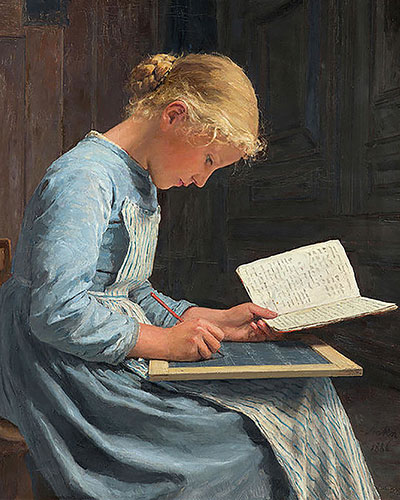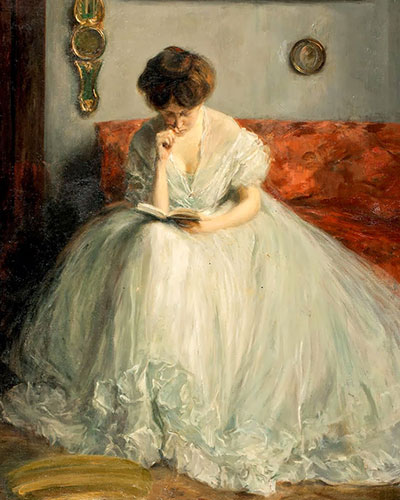Growing up I was a voracious reader. But as I’ve admitted elsewhere, I’m not in any danger of being labeled a literary snob. I’m not much into reading all the classics that everyone says you have to read.
Frankly, I read for two reasons. One, I want to learn something about a particular topic. Two, to escape and relax.
I read for the pleasure of it. I think that is why I didn’t enjoy AP English very much. Too much analysis and picking apart what the author meant by this object or this symbolic metaphorical doohickey.
That’s just not really me.
So I found this article quite interesting: The Case for Slow Reading. From the article (bold mine):
Open any newspaper and you are likely to find a story of some school whose students have read a million, two million—some big number of pages. As a payoff, the teachers wear pajamas for a day, or the principal shaves his head or agrees to eat worms, a reward to the delighted students. Then Pizza Hut or some other franchise that sponsored the event hands out coupons for nonnutritious food to the voracious readers.
It’s all great fun, a good story, a terrific photo op. But something bothers me about this picture—it’s as though reading has become a form of fast food to consume as quickly as possible, just one more cultural celebration of speed.
This association of good reading with speed permeates our schools, from the hugely popular Accelerated Reading Program, to “nonsense word fluency” tests in which young children have to decode “words” at a rate of more than one per second, to standardized tests in which reading is always “on the clock.” To be quick is to be smart; to be slow is to be stupid.
As a confessed slow reader, I would like to make a case for slowness. By slowness, I don’t mean the painful, laborious decoding some students must do or the plodding march through some assigned novels that may take weeks. Any pleasure or success in reading requires fluency and the ability to read with some pace.
But there is real pleasure in downshifting, in slowing down. We can gain some pleasures and meanings no other way. I think of the high-speed trains in Europe that I always wanted to ride, ones that hurtle through the French landscape at more than 200 miles per hour—that is, until I learned that at these high speeds, even the distant scenery becomes a blur. The retina simply can’t take in a clear picture at that rate of movement.
The same thing can happen in reading. I’d like to explore what we miss when we define good reading as fast reading and to argue for what Ellin Keene has called “dwelling” in the texts we read.
Author and media theorist Neil Postman provides a foundation for this argument in his classic book, Teaching as a Conserving Activity (1979). Schools, Postman argues, should act on a thermostatic principle; a thermostat acts to cool when a room is too hot and heat when a room is too cool. According to Postman, schools should act to check—and not to imitate—some tendencies in the wider information environment. “The major role of education in the years immediately ahead,” he writes, “is to help conserve that which is necessary to a humane survival and threatened by a furious and exhausting culture” (p. 25).
I get the impression Caroline is going to have certain areas where she kind of ambles along at her own pace. She does not like to be rushed and, unless something changes in the coming years, I can see her as one of the children who is smart as a whip but does not do pressure-packed standardized testing very well.
Pressure-packed reading seems absolutely contradictory to me. Reading should be pleasurable and enjoyed at a leisurely pace.
So it will be interesting to see how this develops in our home. We are doing our best to live a quiet, simple life. We have found the pleasure of downshifting and slowing down. How that translates into Caroline’s education has yet to be seen. But I hope to give her the gift of loving and savoring reading.









 Young 5’s or Kindergarten For Children With Summer Birthdays?
Young 5’s or Kindergarten For Children With Summer Birthdays?
I have two boys and both love books. The older is reading very proficiently and quickly, but not because I pressured him to. The younger is probably more like your Caroline. He will not be pushed into anything, but has taught himself the alphabet, letter sounds and some sight words. I suspect that if I applied any pressure to the process, he would close down. So, having learned my lesson with him many times over with him, I sit back quietly and take it all in.
Again, Carolina and Ellie are sounding like twins separated at birth 🙂 Not likely though. Ellie is almost 5 1/2 now and is SUPER smart. No doubt about that, but she too is a go at her own pace type. Until just recently she wouldn’t even say her ABC’s for me, but we will be reading together and I will pause at the word “yes” or “no” or ask her the beginning sounds of words and she will read them to me. I have a idea that some day she will pick up a Narnia book (or something similar) and just start reading.
I am a fast reader, but I do like to read things just for the enjoyment of it – not over thinking it.